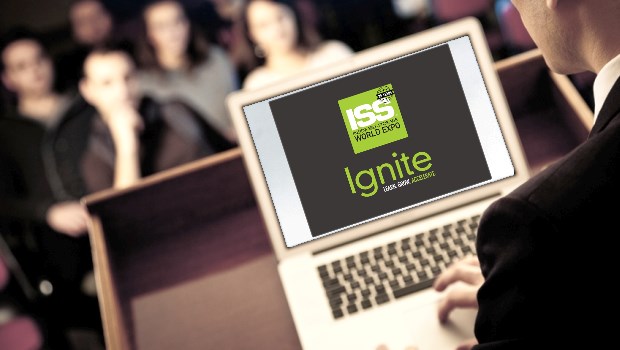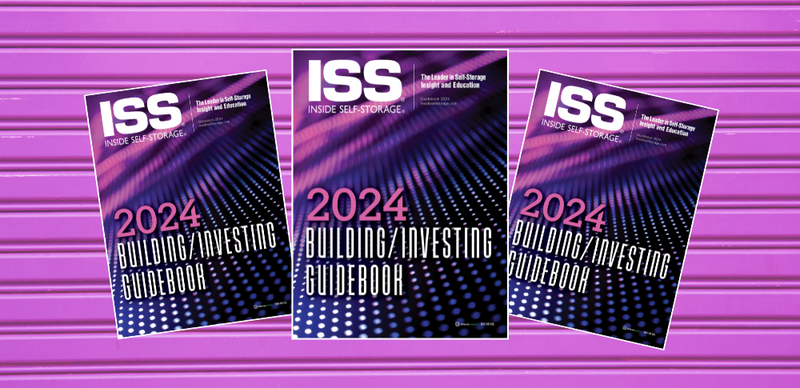We’re getting ready to issue our “call for presenters” for the 2017 ISS Expo, which has me thinking about public-speaking tips. If you’re interested in presenting a seminar at our show or another industry event—positioning yourself as a business authority while delivering a speech that captivates spectators and pleases your host—follow these essential guidelines.
June 9, 2016

Here at ISS, we’re in the middle of what I like to refer to as “presenter season.” I call it that for two reasons: First, we’re in the process of proofing all of the education video that was captured at this year’s ISS Expo in Las Vegas (that’s more than 40 hours of seminar material presented by 70-plus industry speakers). Second, we’re about to initiate the “call for presenters” for our 2017 event, which means over the next few weeks, we’ll be flooded with proposals from experts who wish to participate in the new program.
So now that we’re scrutinizing the footage from the seminars that just took place and beginning the process of vetting future candidates, I have a bunch of pointers on my mind—things speakers can and should do to perfect their presentations and deliver the best possible content to any audience, whether it’s at an ISS show, another self-storage conference or even a non-industry event. If you want to position yourself as a business authority while delivering a speech that captivates your spectators and pleases your host, follow these important guidelines.
Be honest about your abilities. You don’t have to be a seasoned public speaker to provide an excellent presentation, but you do need a certain amount of courage, skill and talent. First and foremost, do you have the expertise the presentation requires? Knowledge is the key, as the more confident you are with the material, the easier it’ll be to share it without having to rely on memorization or notes. It’ll also make it easier to answer questions from the audience, as you can’t always predict what those might be.
Are you relatively comfortable in front of a crowd? All presenters get some jitters, but if yours are excessive and you don’t believe you can overcome them, then public speaking may not be for you. Other things to consider are: Do you have any charisma? Can you project your voice? Can you properly pace your delivery? Can you readily articulate your thoughts? Do you have a sense of humor? In short, are you someone people will find interesting and at ease?
There are thousands of resources that can help you evaluate and improve your abilities as a presenter. If this is something you want to pursue, practice in front of a mirror as well as people you trust to provide honest feedback. Better yet, video yourself and watch it from the perspective of an audience member. If you want professional help, reach out to Toastmasters International or a similar group.
Be honest about your level of commitment. And when I say be honest, I mean with the hiring organization and yourself. If you’re asked to present and you accept, then you must be 100 percent committed to meeting the host’s requirements. Intense effort goes into conference production, and there are few things worse than flakey, wishy-washy presenters who complicate or disrupt the program.
You not only have to be willing and able to show up—prepared—on the designated date and time, you have to be able to meet other requirements. For example, your host may ask you for a photo and biography to include in its website and print collateral. It’ll likely want to see an outline or draft of your presentation in advance. If you’re going to use a PowerPoint deck, video or handouts, those will need to be submitted for approval in a timely fashion.
If you can’t commit to all of the tasks and deadlines involved, don’t take the spot. It isn’t fair to the host, and it’ll reflect poorly on you and your company.
Submit a clear, detailed proposal. This is critical, especially if you’ve never spoken for the host before and have no video sample to submit. Event organizers are understandably hesitant to book speakers if they have no way to anticipate the quality of the presentation. However, many will be willing to make a leap of faith if you obviously have the credentials and knowledge for the job. Make their decision easier by providing as much information as possible about yourself and the seminar you’re offering.
Also, answer all questions on the application, and don’t dodge questions with bogus answers. If you have some weakness that makes you a less desirable candidate, it’s best to address it openly from the start. Most concerns or issues can be circumvented if you’re candid and have a positive attitude.
Now that we’ve covered those three primary guidelines, let’s assume you’ve got the job. Here are some tips for making your presentation the best it can be as well as ensuring the overall experience is positive for you, your host and your audience:
Be appreciative. Understand that being chosen to speak is an honor and privilege. If you’re a self-storage vendor, you’re getting free exposure to hundreds of potential leads plus free publicity for your business, both of which have real value. If you’re a facility operator, you’re expanding your personal and business résumé as well as creating cherished content to share with supervisors, co-workers, investors, lenders, customers, etc.
Respect and support the host. Let your followers know you’re presenting at the event. Use the host’s logo and branding when appropriate to show you’re part of the team. You’re now a representative of the brand, so do it proud!
Understand that you’re a rock star. Being in the limelight comes with pros and cons. On one hand, you’re getting exposure and making connections. On the other, people will now expect more from you. Be prepared for both.
Understand that you’re not really a rock star. Yes, you’re a critical part of the program … So are the dozens of other presenters who have signed on to the event. I don’t care how long you’ve been in the business, how much you know or how many followers you have, your needs are not more important than those of your fellow speakers. So forget about asking for that private dressing room! It’s OK to make special requests of the host, but don’t pout if they can’t be met.
Know your audience. To whom are you really speaking? To avoid disorganization and ensure a clean delivery, know the answer to that question before you design your speech. For example, are you talking to self-storage managers, or owners, or builders? These are unique viewers with unique needs.
Try to enjoy yourself. When you get in front of the room, smile! Don’t be afraid to make a joke or laugh at your mistakes. An audience loves humor and candor. If you’re enjoying yourself, they’ll do the same.
Be educational, not self-promotional. This is a biggie. Seminar attendees are not interested in your sales pitch. This is not an informercial! Stick to the topic at hand, and don’t hock your company, products or services. You’ll only turn off your audience, and worse, you’ll be disinvited from presenting at future events.
Communicate your needs. Let your host know about any special presentation needs well in advance. Do you require an Internet connection or certain piece of technology? Do you need help distributing workbooks or handouts? Do you want someone to run microphones out to the audience? Think ahead and be prepared so your host can be, too.
Know how to use your tech tools. Familiarize yourself with the laptop, projector, remote, laser pointer or whatever other tools you’re using as part of your presentation. No one wants to watch you learn technology on stage.
Keep your audience in the loop. If you get a question or comment from an attendee, repeat it into the microphone so everyone in the room can follow the conversation. It’s not always possible to get a mic out to your audience, and people will yell things out. You may be able to hear them, but not everyone will. To minimize audience frustration, repeat what you’ve been asked or told.
Avoid reading to your audience. It’s fine to use notes, but don’t overly rely on them. Attendees don’t want to hear you read, they want to hear you speak intelligently. Many presenters will use PowerPoint slides on an overhead screen as a guide. This is fine, but don’t spend the entire presentation looking over your shoulder at the screen.
Consider your position. Stand where people can best see and hear you. Avoid walking in front of the overhead screen.
Pay attention to the time. It’s critically important to stay on schedule. Be respectful of your attendees’ time as well as that of the person who may be presenting after you.
PRACTICE, PRACTICE, PRACTICE. In addition to making you more comfortable, this will help you avoid sounding canned or rushed.
Thank them. When concluding your session, thank the audience for their time and attention. Invite them to contact you with questions, and tell them how to do so. Don’t forget to thank your host for including you on the program.
Move along. Unless you’ve made special arrangements with your host, vacate the room as quickly as possible upon completion of your presentation. There may be another seminar or event after yours, and the host or new presenter will need to enter the space. If attendees are waiting to speak to you, encourage them to take your business card or follow you to another location.
Visuals are another critical component to many presentations. These often come in the form of a video or Microsoft PowerPoint deck (displayed on an overhead screen or distributed as a digital or hard-copy handout). There’s a lot I can share with you about creating an attractive, successful PowerPoint for your seminar, so I’ll cover that in a separate blog post.
In the meantime, if you’re interested in submitting a proposal to speak at the 2017 ISS World Expo, please read our guidelines and then complete an online application. If you have questions or comments about the process, feel free to e-mail me or write them in the comments box below.
About the Author(s)
You May Also Like





